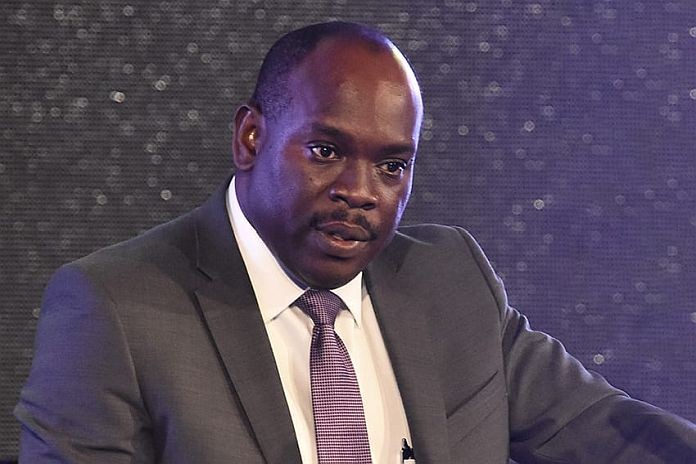By Sharon Austin
BRIDGETOWN, Barbados, (BGIS) — Government will continue to focus on the implementation of its capital works programme and other measures to improve business facilitation; in addition, says minister in the ministry of finance, Ryan Straughn, government will continue to transition its departments and agencies along the path of digitisation in an effort to improve services to the public, and it expects the private sector to follow suit.
Straughn shared the government’s plans in a ministerial statement on the mid-year review, in the House of Assembly on Tuesday night.
During his address, he encouraged persons to get vaccinated, saying that would allow for more relaxation of restrictions. “With the continued arrival of tourists, I am confident that growth and employment will rebound quickly,” he stated.
The minister said the COVID-19 pandemic had continued to impact the pace of Barbados’ recovery over the last six months, with tourism being the hardest hit sector, declining by over 95 per cent during the height of the health crisis.
“The easing of public health restrictions since March 2021 has seen an improvement in economic activity. With the pace of vaccination gaining momentum locally, … and encouraging signs for a global recovery, it is expected the domestic economy will grow by around two per cent by the end of 2021 and 13.2 percent by the end of this fiscal year.
“This outturn is underpinned by a recovery for tourism during the upcoming winter season and a revival of domestic demand as the government strives to fully remove all restrictions and curfews based on achieving vaccine targets by year-end,” Straughn stated.
He noted that additional economic activity was expected from several tourism and public investment projects, which were expected to move to more advanced stages.
Despite the impact of COVID-19, there had been some improvement in the overall revenue performance for the first half of fiscal year 2021/22, as the total revenue stood at $1.3 billion at the end of September 2021, $52.5 million above the outturn for the previous fiscal year.
He pointed out that these positive developments on the domestic landscape during the first half of the fiscal year, as well as a promising outturn for the remainder of fiscal year 2021-2022, had spurred a modest upward revision to nominal GDP forecast for the fiscal year.
The minister explained that the lifting of public health restrictions last March meant that for the period April to September 2021, the average weekly economic activity increased by approximately $20 million to $173.4 million, compared to the same period in 2020.
He stated that despite the impact of COVID-19, there had been some improvement in the overall revenue performance for the first half of fiscal year 2021/22, as the total revenue stood at $1.3 billion at the end of September 2021, $52.5 million above the outturn for the previous fiscal year.
Straughn noted that at the end of September 2021, Barbados’ stock of reserves stood at $2.865 billion, representing almost 42 weeks of import cover. “Never in the history of our country has the Barbados dollar been more secure,” he underlined.
Barbados, he said, had recorded a 95 per cent reduction in tourist arrivals for 2020 and had only started to see some improvement over the summer of 2021.
“This means that the country has not been earning the usual levels of foreign exchange for the past 18 months, yet the previous accumulation of reserves has allowed the country to continue to function and make all our external payments, whether as individuals shopping on Amazon or paying Netflix subscriptions or businesses purchasing food and supplies or making investments. More importantly, these reserves have allowed the country to purchase much needed medical supplies and equipment to fight the pandemic,” he stressed.
Straughn said that even though government faced a revenue loss and a loss of economic activity, Barbadians were supported across every spectrum of the economy and society.
He outlined vulnerable households being assisted, and the introduction of the BEST programme and a 12-month COVID relief programme, which provided contract employment and stimulated the domestic economic activity, as some of the supporting initiatives.





